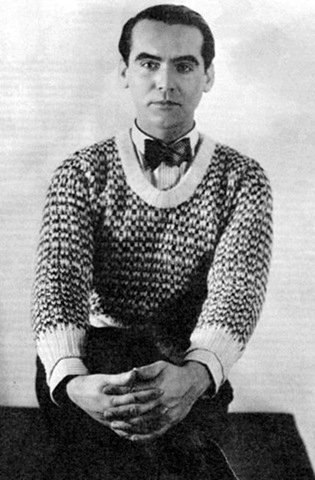It has been a pleasure spending time with the manuscripts submitted for the Stephen Mitchell Translation Prize. A heartfelt thank you to all who entrusted us with their work and for their dedication to the art of translation.
We are excited to announce that Rebecca Seiferle is the recipient for The Dream of Apples: Selected Poems of Federico García Lorca. Rebecca has been awarded $1000, and the book will be published in the fall of 2024. Congratulations to Rebecca! We look forward to working with her to bring these wonderful poems into the world! Her translation work embodies Stephen Mitchell’s maxim that in translating “there’s a deeper faithfulness than simple accuracy. There’s a place where, as in marriage, faithfulness and freedom are the same things.”
Of Federico García Lorca, she writes, “There are few Spanish poets who have so captured the English speaker’s imagination, and yet we continue to read Lorca as we have read him, which is to say through the filters of our own assumptions. Similarly, previous translations have gone in pursuit of surrealism or ‘music’ or romanticism at the expense of the sharp clarity and elemental intelligence of the original. … Breathtaking in its versatility, Lorca’s poetry conveys the sense that there are many Lorcas, but elusive, a play of presence and absence. For Lorca, fluidity and evasion are essential to the truth of poetry. His deep anguish, his performative masques, his sense of difference and his identification with those also marginalized, his sense of the interpenetration of absence and presence, all begin to interconnect if viewed from a queered center. These translations seek only the original, its deep intelligence, where a phrase can convey what Lorca called duende, an elusive ‘something else’ that evades all definition, ‘a mysterious force that everyone feels and no philosopher has explained’ ... the spirit of the earth.”
There were many wonderful manuscripts submitted, which made for pleasurable reading and difficult decisions. I would like to honorably mention several translators, poets, and writers whose work captivated our attention:
— Kevin Carollo’s translation of The Law of the Trough by Patrice Nganang
— Bradley Harmon’s translation of ANIMA by Birgitta Trotzig
— Adriana X. Jacob’s translation of Yakantalisa and Other Poems by Hezy Leskly
— Margaree Little’s translation of The Voronezh Notebooks by Osip Mandelstam
— Carlo Massimo’s translation of Mario Scalesi: The Damned Poet of Tunis
— Robin Myers’ translation of The Beast of Being by Susana Villalba
Annually Green Linden Press awards $1000 and publication for a book-length manuscript in any genre translated from any language into English that honors Mitchell’s linguistic acumen. All finalists are considered for publication. The contest is open June 21 through November 30.
*********

